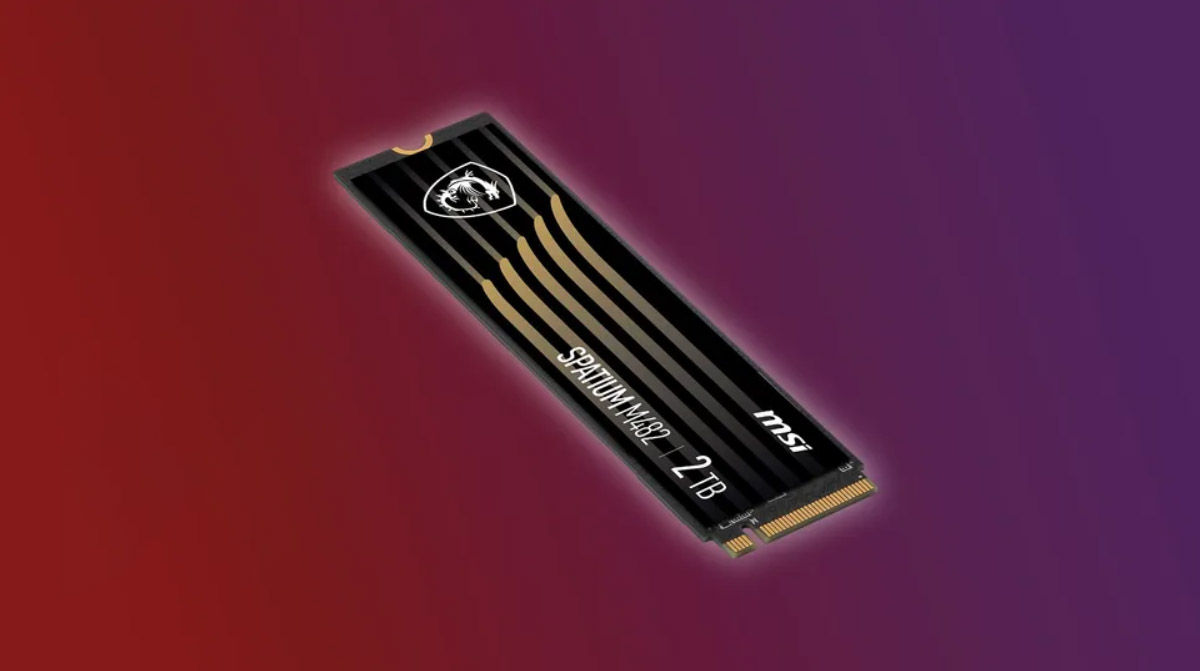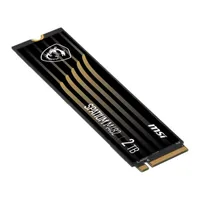Speedy MSI 2TB PCIe 4.0 SSD hits 5 cents per gigabyte – lowest price since Cyber Monday
DRAM-less, but rated for 7300MB/s reads and 6400MB/s writes

It's tough to find any piece of tech right now that's as cheap as it was last year, but Newegg is selling the MSI Spatium M482 2TB for $104.99. That's the lowest price we've seen it since late last year, when it was about $15 less. Still, that's only about $30 more than a good 1TB SSD these days. And while it's not bleeding-edge fast, there isn't much a downside to this MSI drive.
This is modern hardware, not some 2021-era clearout deal. The Spatium M482 uses Phison's recent E27T controller, paired with Kioxia's 162-layer TLC NAND. While we haven't reviewed this MSI drive specifically, it sports the same controller and NAND as the Corsair MP600 Elite and Inland TN470.
2TB MSI Spatium M482 Eco-Pack: now $104 (was $119)
The 2TB MSI Spatium M482 comes with Phison's E27T controller and Kioxia TLC NAND, which together provide excellent PCIe 4.0 performance. Yes, it's DRAM-less, but HMB means it's still plenty fast, and at $104 it's one of the more affordable 2TB drives in its class.
If you've looked at the MP600 Elite and TN470 reviews and wondered about the 3.5-star rating, that's primarily because both of those drives launched at $140 or more for the 2TB capacity models. Knocking $35 off the price to get close to $100 makes this drive a lot more appealing.
Most competing 2TB drives will come with QLC NAND, and while you can get good burst performance with such solutions thanks to pSLC caching, the gains taper off as the drives get filled up. TLC mostly avoids such problems, with direct-to-TLC write speeds of around 1,400 MB/s. If that doesn't sound particularly fast, keep in mind that the best QLC NAND currently gets around 320 MB/s when the cache is full.
Games are becoming increasingly voluminous, and some new releases tip the scales at well more than 100GB. Some games — like Call of Duty — can even break the 200GB mark. Setting aside 200GB or so for Windows 11, various applications, plus a bit of elbow room, means you could fill up a 1TB SSD with as little as five modern games. So if you want a lot of storage, getting 2TB of PCIe 4.0 storage for around $100 is about as good as we've seen in recent months.
Get Tom's Hardware's best news and in-depth reviews, straight to your inbox.
After a rough start with the Mattel Aquarius as a child, Matt built his first PC in the late 1990s and ventured into mild PC modding in the early 2000s. He’s spent the last 15 years covering emerging technology for Smithsonian, Popular Science, and Consumer Reports, while testing components and PCs for Computer Shopper, PCMag and Digital Trends.

